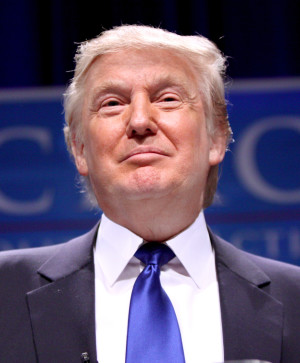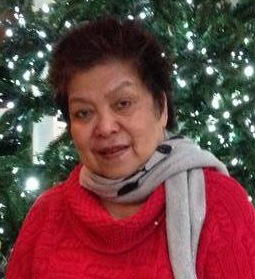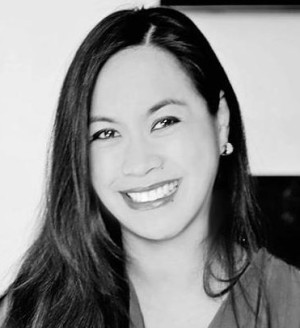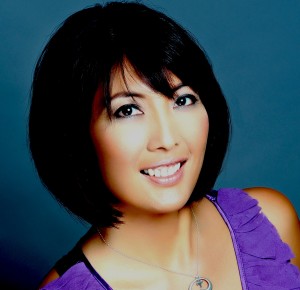Filipinos in the U.S. weigh in on Trump
PORTSMOUTH, New Hampshire – One thread that weaves through the history of the U.S. as an immigrant nation is the nativist aversion toward newcomers, especially those who act and look different.
Discrimination against Asian immigrants, for example, from the Chinese Exclusion Act to the internment of Japanese Americans during World War II and violent racist attacks on Filipinos in the early part of the 20th century, were part of the experience of Asian immigrants as they tried to eke out a living and become part of American society.
With this as historical backdrop, there are grave concerns that presidential candidate Donald Trump is tapping into latent xenophobia for political gain, which can unhinge America’s ugly racist tendencies and bring America back to the dark ages of racial discrimination.
Trump’s summary claim that Mexican migrants are drug dealers, criminals and rapists smacks of the same ugly racism of America’s darkest past. His call to exclude all Muslims from entry into the U.S. is unprecedented in the breadth of its thoughtless generalization that all 1.6 billion Muslims are to be considered suspected terrorists.
Economic distress
Historical junctures that saw a spike in xenophobia seem to be correlated with economic anxiety, with foreigners often made the scapegoat for economic distress. The 1930s had the Great Depression.
Today’s economic malaise is still the aftermath of the Great Recession of 2007-2008, and Trump’s entry into politics seems perfect timing.
Do Filipino Americans look at Trump as a demagogue trying to pull a fast one, or are many among his supporters who see him not as a threat, but as a potentially good leader?
A sampling of the views of Filipino Americans and some Filipino immigrants around the U.S. reveals a variety of views, ranging from clinical pragmatism to outright contempt. Respondents were asked to list their top three election issues and comment on how a Trump presidency might impact those issues.
It’s the economy, stupid
Dr. Martin Bautista, a gastroenterologist in private practice in rural Oklahoma, believes that the central issue of this election cycle is the economy.
“Health care, job creation, foreign trade, national security, immigration and climate change all depend on a vibrant economy,” Bautista argues. “Since a majority of Filipinos are making more money relative to other ethnic groups, Trump’s monumental tax cuts will greatly benefit us.”
Bautista is right about Filipinos being in the upper tax bracket. According to Pew Research, the median household income of Filipinos in America ($75,000) is the second highest among all Asian groups, just behind the median for Indians ($88,000).
Trump has proposed that those earning around $75,000 should be taxed at 20 percent, a good chunk lower than the current 25 percent.
Whether Trump’s tax plan is realistic is being debated. Grover Norquist of the Americans for Tax Reform, has endorsed it, but according to the non-partisan Tax Policy Center, the plan “would reduce federal revenues by $9.5 trillion over its first decade, (and) unless it is accompanied by very large spending cuts, it could increase the national debt by nearly 80 percent of gross domestic product by 2036.”
Yes to diversity, no to xenophobia
A management development consultant from the seacoast of New Hampshire, who prefers to remain anonymous, agrees that the economy is a top concern, specifically the “expansion of the middle class,” but she also embraces diversity and is thus averse to Trump’s anti-immigrant and anti-refugee rhetoric:
“I am very concerned about his attitude toward minorities, immigrants and refugees. He is capable of inciting hatred. He is a divisive individual … I cannot bear to listen to him.”
In addition, she values the need to preserve the environment, to which Trump has shown no interest. Trump’s unapologetic vulgarity is another deal breaker for her: “I do not see him as representing the U.S. abroad.”
There are respondents who value the economy, but not as their number one issue. Joy Bruce, past president of the Asian American Federation of Florida and founding president of NANAY, a non-profit organization that serves elders in Miami, Florida, lists immigration as her top concern.
Like the consultant from New Hampshire, Bruce thinks Trump is “anti-immigrant and will not support immigration reforms … and his plan to build a high wall at the border using Mexican money is absurd.”
Next on Bruce’s list of top issues is health care, followed by the economy. She thinks Trump’s opposition to the Affordable Care Act will hurt millions.
On the economy, Bruce is more open to Trump since he is “an experienced business entrepreneur and can introduce new ways of reducing our debts, improving the economy and bringing back jobs that have been moved out of the country.”
Not fit to be president
Elena Peralta, a retired nurse from San Jose, California, hates Trump’s “bullying tactics, prejudices and lack of respect for fellow candidates.” She does not think Trump is fit to be president, both locally and as America’s representative to the world.

Undated photo of Filipinos during a Philippine Independence Day celebration in San Francisco’s Union Square. KABAYAN
Peralta considers misplaced government priorities as the top election issue. Instead of addressing domestic problems like “the budget deficit, poverty, declining quality of education, lack of affordable health care and unemployment,” America is embroiled in costly military interventions around the world.
Peralta also lists immigration as a top issue. She believes illegal immigration needs to be controlled but strongly favors a more open skill-based immigration policy, which can benefit graduates from the Philippines.
Ma. Nicia Guanco, a home care nurse working in Chicago, Illinois, echoes Peralta’s disdain for Trump, who she thinks is a polarizing force and is likely to widen the racial and religious divide.
Guanco also agrees that the U.S. should control illegal immigration, but doubts whether Trump’s plan to build a wall paid for by the Mexicans is feasible.
Guanco finds gun control important. Her patients at the South Side of Chicago tell her of the unmitigated violence in their neighborhood, and she believes that some form of gun control is required to turn the tide. Trump has pledged to scuttle attempts at gun regulation.
Global peace, national security first
Ren Arrieta, a professional photographer from Torrance, California, lists global peace as his top issue and thinks a Trump presidency will be a disaster on that front. He likens Trump to a new Hitler, who could create havoc and maybe even hasten a full-blown world war.
On Trump’s anti-immigrant rhetoric, Arrieta’s concern gets close and personal: “My son, a natural-born American citizen, when hearing Trump’s hateful rants against immigrants, fears that he too might be subjected to racial discrimination and harassment due to his brown skin.”
He adds, displaying a sense of historical context, “Make no mistake about it, while some Filipino Americans support Trump, having a president who fails to see strength in diversity will bring us back to square one.”
Like Arrieta, Venessa Manzano, a nonprofit professional in New York City, lists foreign affairs, including national and international security, as her top issue, followed by health care and the economy.
“A Trump presidency,” according to Manzano, “will negatively impact those issues because I do not feel he has the experience, knowledge and best interest of our people in mind when he makes decisions. It is all for self-interest.
On immigration, which is important to Filipino Americans, Venessa says, “Trump’s stance on the issue makes me skeptical and saddened by how he negatively targets specific groups.”
The shrinking middle
Dr. Del Faustino, a dentist based in Portsmouth, New Hampshire, also considers the economy, specifically the shrinking middle class, as the main election issue. He fears that Trump’s plan to repeal the Affordable Care Act will further erode the middle class, while the top one percent continues to be rewarded with tax breaks and tax loopholes.
Like Arrieta, Faustino is also concerned about the potential “escalation of racism and social unrest” due to the anti-immigrant animus that Trump is stirring up.
“Emigrating to the U.S. has always been an aspiration of Filipinos, as well as of people from other countries,” he says. “Trump’s plan to ban certain groups of people, such as Muslims (including Filipinos who identify as Muslims), to enter the U.S. will further endanger the national security.” Faustino believes that religious-based discrimination creates the “us versus them” mind-set and enmity that fuels hatred and terrorism.
Trump even supports the killing of families of terrorists and wants the U.S. to appropriate oil in the Middle East. A recent report by the Economist Intelligence Unit (EIU) says, “His militaristic tendencies towards the Middle East and ban on all Muslim travel to the U.S. would be a potent recruitment tool for jihadi groups, increasing their threat both within the region and beyond.”
Just last week the EIU listed a Trump presidency as big a threat as jihadi terrorists to the world economy.
Trump all the way
Anita Schon, a resident of Washington state and president of the Overseas Filipino Council International, supports Trump all the way.
Schon believes that Trump “will make a very good president, as he will not succumb to political correctness.”
“It is ridiculous that Muslims and other ethnic groups can demand things like no God and no Christmas and are allowed to wear those black Muslim outfits,” Schon laments. “How do we know they are not hiding weapons underneath?”
The economy, including the outsourcing of jobs overseas, tops Schon’s list of concerns. Her other top issues are directly linked the economy as well: companies hiring illegal immigrants (and thus taking jobs away from Americans) and the abuse of welfare, she said especially by immigrants.
“Those people get free medical, have SSI, low-income housing, food stamps and all kinds of benefits not accorded to people who worked all their lives,” Schon points out. “I know they are getting more from their SSI or welfare checks than what I am getting from my retirement pension.”
Careless rhetoric, immigrants beware
Myrene Agustin Magabo, who teaches communications at Penn State University and the University of Phoenix and is a board member of the American Communication Association, lists national security as her top issue. She thinks that Trump’s careless rhetoric breeds anger that could undermine social order.
As to her other top issues, health care and education, Magabo points out that Trump has not presented any real alternative to the Affordable Care Act and has no solid plan to address the inadequacies of the country’s state of education.
To Filipinos living in the U.S. illegally, Magabo cautions that “Trump appears to have a ruthless attitude toward immigrants. Those who are illegal immigrants should fear his reign.”
Like Magabo, Jasmin Zarraga Divinagracia of San Jose, California, foresees “massive deportation, which will affect the economy.” Even for those who have applied legally based on family petition, Divinagracia thinks a Trump presidency will mean “a longer wait for families to be united.”
A setback for progress
Rose Marie Arias Candaza, a nurse in Boston and vice president of the Philippine Nurses Association of New England, is most concerned about the gridlock in Washington, D.C. She is also anxious about the “growing economic disparity between the rich and the poor” and the decline in America’s reputation abroad.
Candaza thinks Trump will worsen all three problems. As a health care professional, she worries that if Trump wins the presidency there will be an explosion in the cost of health care and a reversal in the growing availability of health insurance.
Trump has joined other Republican candidates in pledging to repeal the Affordable Care Act. The Department of Health and Human Services claims that 16.4 million uninsured people have gained coverage as a result of the ACA.
Cautiously hopeful
Deirdra Vachal, a principal of a clinical research organization based in Somerset, New Jersey, also lists the economy (particularly the national debt, budget deficit, unemployment and trade deficit) as her top issue, followed by health care and a decline in moral values.
Vachal is cautiously hopeful of Trump’s leadership ability: “It is possible that a Trump presidency can address the debt problem and decrease federal spending through cutting of wasteful programs that do not contribute to national productivity.
“I am hopeful a Trump presidency, through the help of Congress, will address the unfavorable health-care scenario by opening up more channels where health insurance can be purchased; e.g., across state lines, instead of a government-mandated choice of insurance dependent upon the state of the U.S. resident.”
Vachal, however, is not sure how Trump will impact the issue of moral decline: “I am not clear as to how a Trump presidency will impact the third issue, as it is not economic and political, but moral and spiritual.”
One issue that she considers particularly important to Filipinos in the U.S. is the rising cost of education. Having put two children through college, she expresses grave concern over “exorbitant costs that keep on increasing, almost as if by design.” She is not clear how Trump will address the issue.
No concrete plans
For Alberto Manalo, an associate professor of environmental and resource economics at the University of New Hampshire, “stagnant incomes for many Americans, leading to income inequality and lower opportunities for the poor to advance,” is the most important issue in the U.S. today.
Manalo laments that “Trump has not spoken about concrete and specific steps” to address that primary issue, and it appears that, with regard to income inequality, “Trump would not be willing to impose meaningfully higher taxes on the rich. According to analysts, the tax reform he proposed last year will result in significant tax breaks for the rich.”
Manalo also cites America’s crumbling infrastructure and the gridlock in Washington as top issues. He assigns credit to Trump’s experience in business: “I assume he understands the importance of making infrastructure investments now so that the country can enjoy the benefits of those investments well into the future.
“But making those investments would mean raising revenue, through taxes, to pay for them. I’m not sure how willing he is to raise taxes that will impact the wealthy and businesses.”
On the political gridlock, Manalo does not see Trump as “an individual who can persuade the two political parties to work together and pass laws that will address the country’s major problems.”
Just what the country needs
Like Dr. Martin Bautista and Anita Schon, Marlene Damolo Howe, a former banker living in Lakewood, Washington, welcomes Trump’s candidacy with open arms.
Pointing to Trump’s “track record of success,” she believes that “a Trump presidency means America will be economically sound again, and everybody will be able to have the opportunity to get good jobs based on their skills and qualifications regardless of race, religion and gender.”
Howe thinks that Trump’s “candor and honesty” is what the country needs in a leader—the courage to call out what’s wrong in the country, regardless of who gets hurt, and the will to correct it. She also believes the real estate mogul will be a much more effective commander in chief, with his promise to tap the best military leaders to tackle terrorism and other national security issues.
On the issue of illegal immigration, Howe shares Schon’s view that illegal immigrants are a drain to the economy: “While not paying taxes, they still get to collect welfare, food stamps, free housing, free health care and free education at the expense of those who are hard workers and pay their taxes.”
Like most Trump supporters, Howe emphasizes that Trump is funding his own campaign and, unlike career politicians, he is therefore not beholden to the “master puppeteers” whom she blames for the gridlock in Washington.
Playing to the dark side
Evelina Galang, a professor and director of creative writing at the University of Miami and a multi-award-winning author of several books of fiction, lists immigration as her top issue. She believes that Trump’s candidacy has given “racists permission to speak their hatred openly, creating a potentially dangerous atmosphere for all of us in the U.S. (as witnessed in his recent rallies and hate speech toward almost all minority groups).”
What Trump supporters consider as courageous “candor and honesty” Galang views as “speaking without filter, airing his hatred toward all minority groups (who are on the rise to being the majority) and feeding off the fear of Americans.
“The civil rights movement has come a very long way, and Trump shows no understanding of what our immigrant parents have fought for by leaving their mother nations. He condones violent acts at his rallies, offering to pay for his supporters’ legal fees, so he wants rioting. He wants violence.
“This is not the United States of America. This is the darker side and he plays to it, stirs it up and makes us all a party to fear. That’s my greatest concern.”
Galang relates how Filipinos in America have come far in the civil rights struggle, how her “mom and dad immigrated to the U.S. in the late 1950’s when there was still segregation in the South. My dad has told me countless stories of discrimination.
“Sometimes he was made to use ‘Colored’ bathrooms at gas stations but was forced to use the ‘White only’ entrance at the hospital he worked in to get to his black patients.
“Last October, I was among the invited guests at the White House when they first celebrated Filipino American History Month with invited Filipino American leaders from all around the nation.
“We were guests at the White House. All this is at stake. All this progress. All this recognition. All the reasons why my parents left a nation they loved to provide a better life for us. That’s what’s at stake.”
Like us on Facebook



















